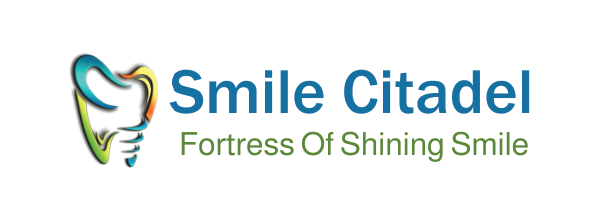Many people live their daily lives surrounded by snacks, yet the foods you choose to eat can significantly affect your oral health. While some meals could improve your teeth and gums, others over time encourage decay, erosion, and gum disease. Knowing which snacks help your smile and which ones can damage it helps you to choose better foods for your general and dental health. This post will discuss the best and worst foods for your teeth as well as how important your diet is to preserving long-term dental health.
Why Snacking Matters for Oral Health?
Every time you eat, especially with regard to sugars and carbs, the bacteria in your mouth consume leftovers. While these bacteria break down food, they create acids that target your enamel, the outer coating of your teeth. Regular snacking can extend acid assaults, raising your risk of gum irritation and tooth decay particularly if you neglect to brush or rinse later.
Not all snacks, meanwhile, are made equally. While some meals fuel bad germs and stick tightly to your teeth, others can help neutralize acids, boost salivation flow, and even strengthen enamel. One easy but effective approach to guard your smile is to pay attention to what and how often you nibble.
The Best Snacks for Your Teeth
Crunchy Fruits and Vegetables
Great oral health snacks are crisp fruits and vegetables including apples, carrots, celery, and cucumbers. Their great water content naturally cleans food waste and neutralizes acids by helping to dilute carbohydrates and increase salivation production. Additionally offering a mild scrubbing action to massage the gums and clean tooth surfaces is the crunchy texture.
Especially helpful are apples, sometimes known as “nature’s toothbrush.” They have polyphenols and fiber that might lower the amount of dangerous bacteria count. Remember, fruits still contain natural sugars, hence rinse with water afterwards.
Cheese and Dairy Products
Other dairy products including cheese and yogurt provide a powerhouse of nutrients that help to support strong teeth. Packed in calcium, phosphate, and casein, a milk protein cheese aids in remineralizing enamel and enhancing tooth structure. Cheese also balances the pH in your mouth and increases saliva flow, therefore offsetting the acid attacks from other foods.
Similar advantages come from plain yogurt and milk, which supply calcium and probiotics meant to strengthen teeth and lower cavity-causing germs. To best utilize their preventive qualities, choose low-sugar or sugar-free types.
Nuts and Seeds
Protein, good fats, and minerals including calcium and magnesium abound in nuts including almonds, walnuts, and cashews. These minerals preserve appropriate jawbone density and support enamel strength. Chewing nuts increases saliva generation and their gritty texture might assist food particles between your teeth come free.
Additionally tooth-friendly minerals abound in sunflower and sesame seeds, which can be a filling low-sugar snack choice. Just steer clear of variations strongly salted or sweet.
The Worst Snacks for Your Teeth
Sticky and Chewy Candies
Though they seem sweet, some of the worst offenders for your teeth include snacks such as caramel, gummy bears, taffy, and dried fruit. These sticky sweets lodge between teeth and attach to tooth surfaces, allowing cavity-causing bacteria easy access to carbohydrates. The longer sugar sits on your teeth causing greater acid production, which accelerates enamel loss.
Because of their intense sugars and sticky texture, even apparently healthful treats such as fruit leathers, raisins, or dried apricots can cause comparable hazards. If you do indulge, brush right away and rinse with water later.
Potato Chips and Crackers
Simple sugars that feed oral bacteria rapidly break down starchy foods such chips, pretzels, and crackers. Often soft and sticky, these carbohydrates find their way between teeth and in crevices where they might persist long after meals.
Many individuals undervalue starchy snacks’ propensity to induce decay as they aren’t usually connected with sweetness. Drinking water both before and after meals as well as flossing later in the day will assist lessen their effects.
Sugary Beverages
Though not strictly speaking a “snack,” sugary beverages include soda, sports drinks, sweetened iced teas, and energy drinks are among the main causes of tooth decay. These drinks weaken enamel and raise cavities risk by bathing your teeth in sugar and acid. Even fruit juices, with their natural beginnings, have strong sugar and acid content that over time could damage enamel.
Although water is generally the best drink for your teeth, if you drink sugary beverages try rinsing with water afterwards and use a straw to reduce contact with your teeth.
Snacking Smart for a Healthy Smile
Maintaining your teeth while still enjoying snacks depends on awareness and balance. Choose low-sugar, nutrient-dense foods that promote enamel health and saliva flow. Reduce frequency of snacking since continuously grazing does not allow your saliva time to neutralize acids and rebuild enamel between meals.
When you snack, follow up with water to wash food particles and think about chewing sugar-free gum to increase saliva flow. Twice a day brushing and daily flossing are still absolutely vital, particularly if you regularly eat snacks that encourage cavities.
Conclusion
Your oral health depends much on the snacks you eat during the day. While crisp fruits, vegetables, dairy, nuts, and sugar-free gum help strengthen your teeth and encourage a clean mouth, sticky candy, starchy snacks, sugary drinks, and acidic foods can quietly erode enamel and drive decay.
Selecting tooth-friendly snacks and being aware of your eating patterns will help you to preserve your smile and lower your risk of cavities, gum disease, and expensive dental work. To have a lifetime of healthy teeth and gums, pair smart snacking with regular dentist checkups, consistent oral cleanliness, and a balanced diet. Your smile is worth the work; and your entire body will reward you.

